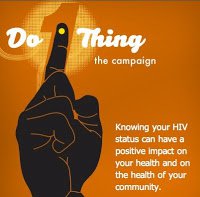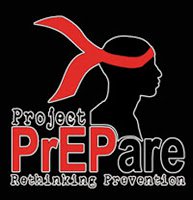The Big Picture - April 2013
by Briana Morgan
by Briana Morgan
April 26, 2013
This post is part of a monthly series published around the fourth Thursday of every month. It provides an overview of themes and topics from the general meetings and committee meetings of the Ryan White Planning Council and Prevention Planning Group each month. To view meeting materials and presentations, please visit www.hivphilly.org.

Do 1 Thing
This month, the Ryan White Planning Council (RWPC) had a bit of a break in its agenda after a very busy and stressful March. (Read about the funding decisions that the RWPC made in emergency meetings in March here.) RWPC members received a presentation on the Do 1 Thing project from Dr. Stacey Trooskin. Dr. Trooskin talked about racial and geographic disparities in both HIV and Hepatitis C (HCV), and how this program was designed to address these disparities. Do 1 Thing is a comprehensive campaign that includes testing, linkage to care, and treatment for both HIV and HCV. There is a heavy community outreach component, and a clinical side as well. View the whole presentation to learn more. The RWPC also welcomed seven new members.
Meanwhile, the Comprehensive Planning and Finance Committees held their first joint meeting to prepare for this year's allocations meetings. Each year, the RWPC plans how it will allocate (or spend) its money for the next fiscal year, even though they don't know how much money the Philly area will have. This way, they'll have a plan in place so they can move quickly once they actually receive an amount. They always break this planning out into separate meetings around the region, so that the Southeastern PA Counties, the South Jersey counties, and Philadelphia each have their own plans. (Become an allocations pro here.) This year will be a little different, since the Affordable Care Act kicks into full gear in January. The Comprehensive Planning and Finance Committees are trying to decide how to best tackle these issues, since there are still a lot of answers we don't have. They agreed on what data they want to look at first, and that they should include the treatment cascade in their decision-making.
The Needs Assessment Committee has also been talking about the importance of the cascade, and linkage to HIV care in particular. They want to find out more about the process that different HIV testers use to get new positives into medical care. This month, they talked about that process in two different systems. They also began to work out the questions that they still had, in order to decide what type of needs assessment would be most appropriate.

Project PrEPare
The Positive Committee talked about something a little different - pre-exposure prophylaxis, or PrEP. PrEP involves HIV-negative people taking antiretroviral medications in order to prevent HIV infection. Dr. Sarah Wood and Kimberley Desir came to the committee to talk about the Children's Hospital of Philadelphia's PrEP trial, called "Project PrEPare." They're recruiting young men and transwomen who have sex with men, between the ages of 18 - 22, for this study. Learn more about Project PrEPare in their presentation.
In April, the Prevention Planning Group moved forward in its plans for change for the summer. The current membership will end on June 30, so the PPG is using this time to draft new bylaws, membership applications, and other documents. At their April meeting, they agreed upon a name for the new group (the Philadelphia HIV Prevention Planning Group, or HPG), and reached consensus to adopt their new bylaws. They also approved a membership application, and will be recruiting new members soon. Keep an eye out!
This is an exciting time to get involved in community planning for the Philadelphia area. To learn more, follow the links in this post, attend one of the meetings listed on our calendar, or email info@hivphilly.org to find out how to get involved. If you have questions, you can also call us at 215-574-6760.
This website is supported by the Health Resources and Services Administration (HRSA) of the U.S. Department of Health and Human Services (HHS) as part of an award totaling $20,808,001. The contents are those of the author(s) and do not necessarily represent the official views of, nor an endorsement, by HRSA, HHS, or the U.S. Government. For more information, please visit HRSA.gov.